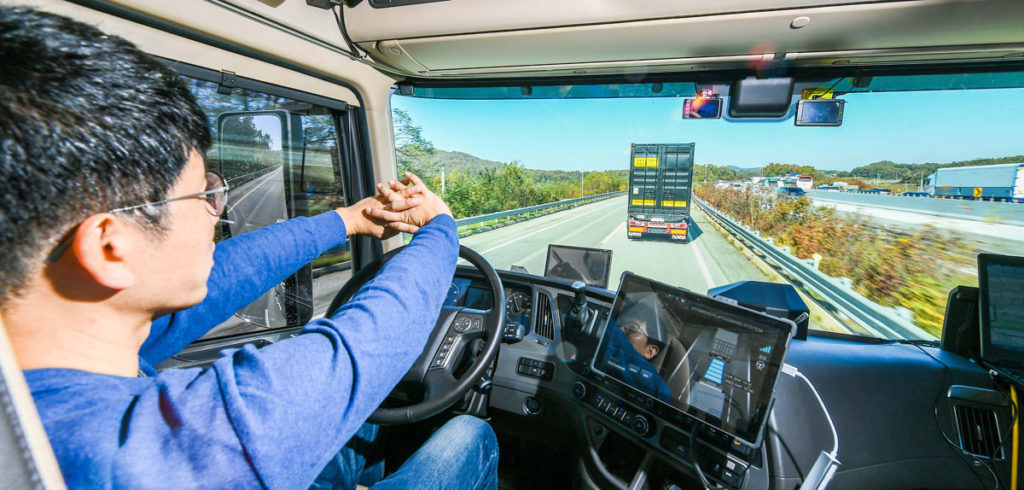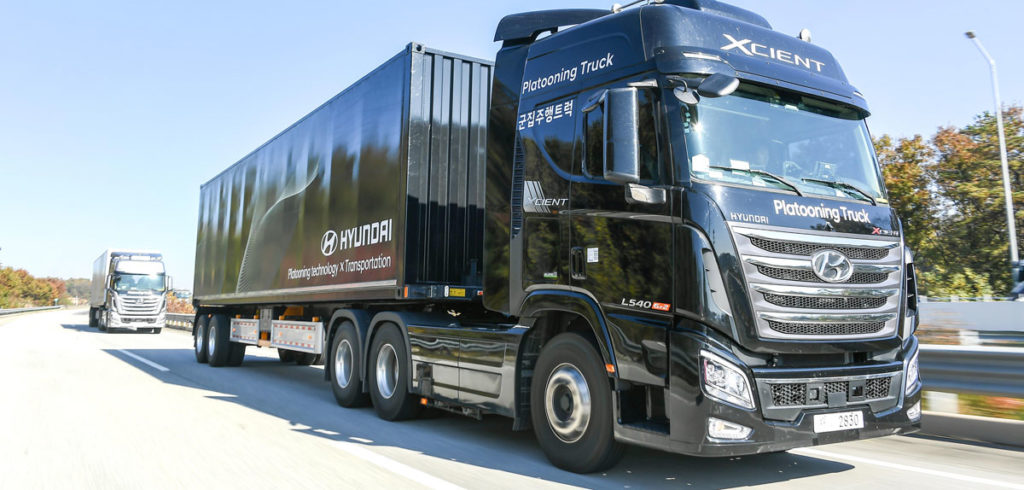Hyundai has successfully tested platooning of its 40-tonne Xcient trucks on the Yeoju Smart Highway – a 4.5-mile stretch of road earmarked by the Korean government for the development of autonomous vehicles.
The trucks were limited to 37mph for safety reasons, and were put through a series of trials to test close-proximity convoy driving, emergency braking, vehicle-to-vehicle (V2V) communications, and responsiveness to other road users.
Vehicle platooning enables heavy-goods vehicles to follow one another closely so that the convoy benefits from reduced air resistance behind the lead truck. This reduces emissions and improves fuel economy. The trucks are also fitted with lane-keeping technology and other sensors to ensure distances between them remain safe in all driving conditions. The system will even adapt should another driver cut in between the vehicles.
The trucks communicate in real time to ensure smooth acceleration, braking, and an immediate response to emergencies via ADAS. The lead truck also broadcasts real-time video of the road so that trailing drivers can see conditions ahead despite the reduced visibility.
Jihan Ryu, head of Hyundai’s commercial vehicle electronics control engineering group, said, “We are confident that our industry-leading autonomous driving technology for commercial vehicles will lead to a paradigm shift in the freight and logistics industry. We will strive to create constructive synergy by sharing our experience developing autonomous driving technology in the commercial- and passenger-vehicle sectors to expedite SAE Level 5 autonomous driving.”



